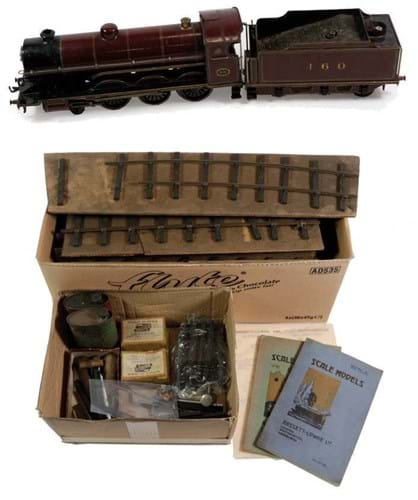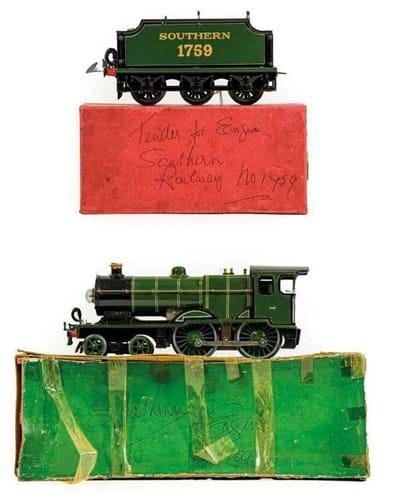Consigned by a private north of England vendor, it doubled the top estimate in Leyburn on July 30, selling at £3000 to an online private bidder from southern England.
The locomotive was made by German manufacturer Bing for British firm Bassett- Lowke to retail. This was a common arrangement pre-1914 (also including German toy giants Carette and Märklin) with extra details often added to a basic design, but the First World War interrupted the supply. Post-war, many British manufacturers changed to domestic production and Hornby began to dominate.
However, this Bing toy can be definitely dated to the inter-war period: it was sold with its original receipt, a rare occurrence that showed that it had been purchased on July 31, 1923, for £15/15/0. It was also offered with two Bassett-Lowke catalogues and a selection of assorted accessories such as parts of the burner and oil cylinders.
Hornby in demand
Another railway toy that sold well above estimate was a Hornby Series O Gauge E220 Special Locomotive in Southern Railway livery, which along with its tender took £1600 (guide £500-800) from another private south of England buyer. The private vendor was from the north of England (different to the Bassett-Lowke).
Although prices for Hornby O gauge overall are generally on the low side these days, certain models can achieve four figures. This Tennants result was at a level above even the toy which normally makes such a price: the electric Princess Elizabeth, the biggest and best locomotive that Hornby ever made, from 1937. For example, one offered in its original wooden display box with inner information card sold at £1200 at Wallis & Wallis of Lewes in April 2020.
Tennants toy specialist Kegan Harrison explained: “Southern are the rarest of the Hornby locos. The company was based in Liverpool and concentrated on LMS and LNER – the regional/northern railways. Most collectors are based in the south/home counties and like to collect their regional railways. In addition it was an L1 – one of the rarest electric locomotives.”
















